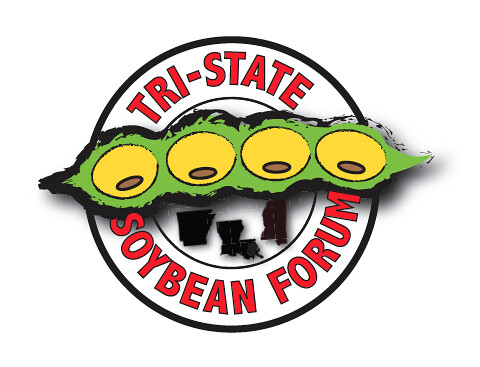Drought, nematodes, taproot decline on agenda for Jan. 6 Tri-State Soybean Conference in Dumas, Arkansas
Nov. 22, 2022
By Ryan McGeeney
U of A System Division of Agriculture
Fast Facts:
- Conference scheduled for Jan. 6, 2023
- No cost to attend, no pre-event registration required
- CEUs for consultants available
(561 words)
(Newsrooms: With file art of Faske, Davis)
LITTLE ROCK — Two major soybean-growing villains — taproot decline and nematodes — will be on the agenda for the Tri-State Soybean Conference, an event that returns to Arkansas on Jan. 6.
The annual conference rotates among three powerhouse soybean production states: Arkansas, Louisiana, and Mississippi, and brings together hundreds of producers, researchers and other professionals. It will be held at the Dumas Community Center, 18 Belmont St., in Dumas, Arkansas.
The conference opens at 8 a.m. with registration and ends with lunch at 12:15 p.m. There’s no cost to attend and pre-event registration isn’t required. Continuing education units are available and those seeking CEUs can sign up at the door.
“Nematodes and taproot decline — those will have the greatest effect on soybean production next year, which is why we wanted them on the program,” said Steven Stone, Lincoln County extension staff chair for the University of Arkansas System Division of Agriculture. “Our program, from top to bottom, is going to be good and people will pick something up from all the talks.
“This year was very hot and dry for us,” he said. “This is typically when we see issues with nematode injury.”
Travis Faske, extension plant pathologist for the Division of Agriculture, “is going to talk about resistant varieties and highlight some of his work on those varieties and maybe they can head off some of those nematode problems in the future,” Stone said.
He also said soybean growers “have a quickly growing problem with taproot decline. Trey Price from LSU will talk about what we can do to address that through cultural practices and some varieties that have shown some promise as resistant.”
Rest of the agenda
This year’s conference will include experts from all three states covering topics ranging from soil fertility and efficient irrigation to advancements in applicator technology and pest management. Soybean agronomists from Louisiana State University and Mississippi State University and Arkansas’s Division of Agriculture will also deliver a “state of the states” discussion.
Hunter Biram, extension economist for the Division of Agriculture, said he will speak on several economic aspects of soybean production, beginning with the market situation and outlook.
Biram will discuss “what we learned from the summer 2022 drought and the Mississippi River issue, farm bill program decisions for the 2023 season and profitable crop insurance coverage suggestions.”
A shrimp and sausage gumbo lunch will be catered by Toby Young after the final presentation.
As an added incentive, attendees have a chance at winning approximately $2,000 worth of door prizes, most of which will be outdoor or hunting items.
The agenda:
8-8:30 a.m. Registration
8:30-9 a.m. Trent Roberts – professor-soil fertility, University of
Arkansas System Division of Agriculture
“Soil Fertility and the Potash Calculator”
9-9:30 a.m. Mike Hamilton – irrigation instructor, University of Arkansas
System Division of Agriculture
“Irrigation Efficiency and Soil Moisture Sensors”
9:30-10 a.m. Hunter Biram – assistant professor, extension agricultural
economist, University of Arkansas
System Division of Agriculture
“Soybean Marketing Strategies”
10:15-10:45 a.m. Jason Davis – extension application technologist, University
of Arkansas System Division of Agriculture
“See and Spray Application Technology”
10:45-11:15 Travis Faske – professor and extension plant pathologist,
University of Arkansas System
Division of Agriculture
“Root Knot Nematode Management”
11:15-11:45 Trey Price – associate professor, LSU Ag Center Macon Ridge
Research Station
“Tap Root Decline Management”
11:45-12:00 State of the States
Update from Mississippi, Louisiana and Arkansas
soybean agronomists
Noon-12:15 United Soybean Board/Promotion Board update
To learn about extension programs in Arkansas, contact your local Cooperative Extension Service agent or visit www.uaex.uada.edu. Follow us on Twitter and Instagram at @AR_Extension. To learn more about Division of Agriculture research, visit the Arkansas Agricultural Experiment Station website: https://aaes.uada.edu/. Follow on Twitter at @ArkAgResearch. To learn more about the Division of Agriculture, visit https://uada.edu/. Follow us on Twitter at @AgInArk.
About the Division of Agriculture
The University of Arkansas System Division of Agriculture’s mission is to strengthen agriculture, communities, and families by connecting trusted research to the adoption of best practices. Through the Agricultural Experiment Station and the Cooperative Extension Service, the Division of Agriculture conducts research and extension work within the nation’s historic land grant education system.
The Division of Agriculture is one of 20 entities within the University of Arkansas System. It has offices in all 75 counties in Arkansas and faculty on five system campuses.
Pursuant to 7 CFR § 15.3, the University of Arkansas System Division of Agriculture offers all its Extension and Research programs and services (including employment) without regard to race, color, sex, national origin, religion, age, disability, marital or veteran status, genetic information, sexual preference, pregnancy or any other legally protected status, and is an equal opportunity institution.
# # #
Media Contact:
Ryan McGeeney
rmcgeeney@uada.edu
@Ryan_McG44
501-671-2120
